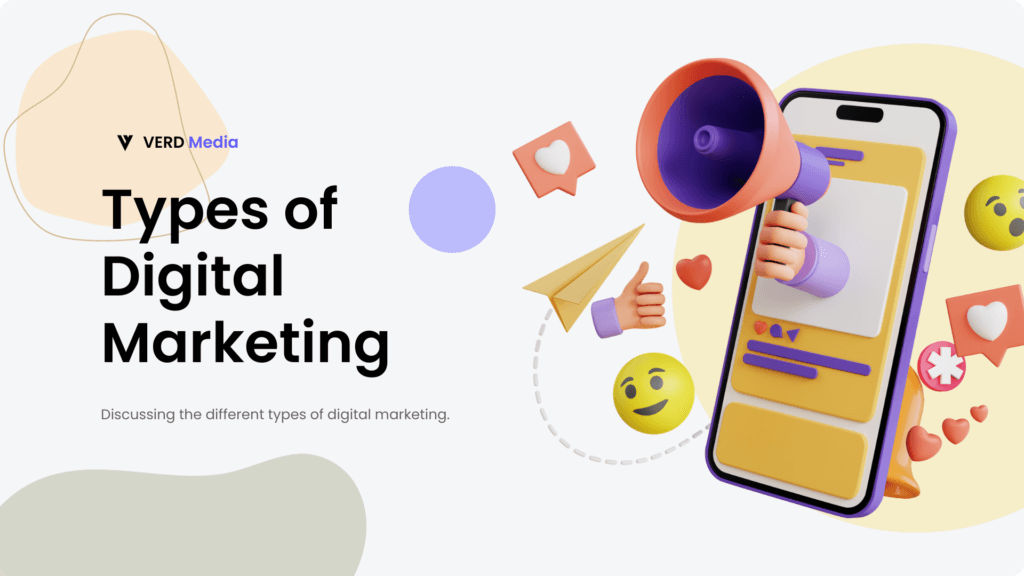In the rapidly evolving digital age, businesses and brands are constantly on the lookout for ways to engage their audience, increase visibility, and drive conversions. Enter digital marketing, a multifaceted approach that harnesses the power of the internet and electronic devices to connect with consumers. But what exactly are the different types of digital marketing? Let’s delve deep into this world and explore each one.
Search Engine Optimization (SEO)
SEO is a strategy that focuses on improving a website’s visibility in search engine results pages (SERPs). By optimizing various elements of a website, from its content to its structure, businesses can increase their organic (non-paid) rankings, leading to more visibility, traffic, and potential customers.
Pay-Per-Click (PPC) Advertising
Unlike SEO, which focuses on organic traffic, PPC is a form of paid digital advertising. Here, advertisers pay a fee every time their ad is clicked. Google Ads is the most popular platform for PPC, allowing ads to appear on Google’s search results.
Content Marketing
Content marketing is about creating and distributing valuable content to attract and engage a target audience. This can include blogs, videos, infographics, podcasts, and more. When done correctly, it establishes brand authority and nurtures relationships with consumers.
Social Media Marketing (SMM)
SMM leverages social media platforms like Facebook, Instagram, Twitter, and LinkedIn to promote products, services, or brands. It offers a two-way communication channel, allowing brands to interact directly with their audience and build brand loyalty.
Email Marketing
One of the oldest forms of digital marketing, email marketing remains incredibly effective. It involves sending emails to prospects and customers, offering everything from newsletters to promotional offers. It’s a direct and personal way to nurture leads and drive conversions.
Affiliate Marketing
In affiliate marketing, a business rewards an external partner (the affiliate) for generating traffic or sales through the affiliate’s marketing efforts. It’s a performance-based approach, where the affiliate earns a commission for every sale or action taken.
Influencer Marketing
Utilizing social media influencers to promote products or services, influencer marketing capitalizes on the trust and following that these individuals have built. It’s a way to tap into an existing community and reach potential customers through authentic content.
Online Public Relations (PR)
Online PR is the practice of managing a brand’s online reputation through digital channels. This includes responding to customer reviews, engaging in online forums, and ensuring positive brand mentions on digital platforms.
Conclusion
In a world where digital presence is paramount, understanding the various types of digital marketing is essential. From SEO to influencer marketing, each strategy offers unique benefits and challenges. By integrating these methods effectively, businesses can navigate the digital landscape, build meaningful connections with their audience, and achieve their marketing objectives.
FAQs about Types of Digital Marketing
Q. What is the difference between SEO and PPC?
- SEO focuses on organic traffic by optimizing website elements for search engines. PPC, on the other hand, involves paying for ad placements, typically on a per-click basis.
Q. Is content marketing the same as blogging?
- While blogging is a form of content marketing, content marketing encompasses a broader range of content types, including videos, infographics, podcasts, and more.
Q. Which type of digital marketing offers the best ROI?
- The ROI varies depending on the industry, target audience, and strategy implementation. Often, a combination of strategies yields the best results.
Q. Do I need a big budget for PPC advertising?
- No. PPC platforms, like Google Ads, allow you to set your budget. However, competitive industries might require a higher budget to stand out.
Q. How do I choose the right influencer for influencer marketing?
- Look for influencers who align with your brand values, have an engaged audience, and resonate with your target demographic.
Q. Is email marketing still effective?
- Yes, when done correctly, email marketing can offer one of the highest ROIs among digital marketing strategies.
Q. Can I do digital marketing on my own?
- While businesses can handle some digital marketing strategies in-house, others might benefit from expert knowledge or specialized tools. Consider your strengths, resources, and goals.
Q. How often should I review and adjust my digital marketing strategy?
- Regularly. The digital landscape is dynamic. Monitor your results, keep abreast of industry trends, and adjust your strategies accordingly.


